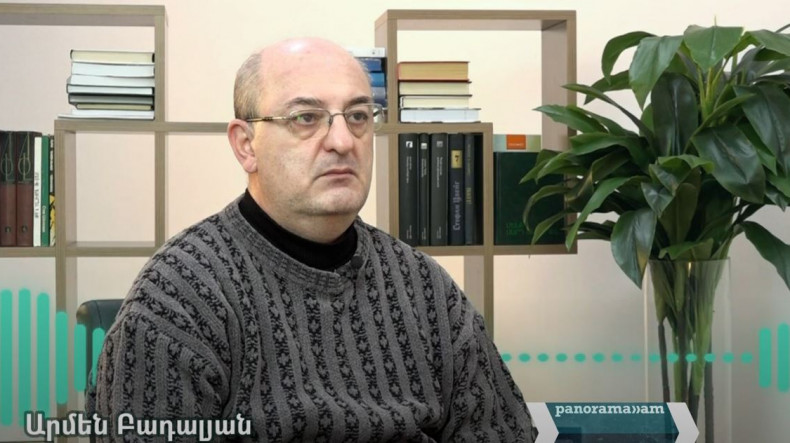
Expert explains Russian backlash against Armenia-EU-US meeting
Russian Foreign Ministry spokesperson Maria Zakharova on Thursday expressed concern over Prime Minister Nikol Pashinyan’s upcoming trilateral meeting with top U.S. and European Union officials in Brussels, claiming that it has anti-Russian bias.
Zakharova's Azerbaijani counterpart Ayhan Hajizadeh called on the EU and the U.S. to refrain from steps that could provoke new waves of escalation and tensions in the South Caucasus region.
Panorama.am on Wednesday reached out to political technologist Armen Badalyan for comment on Russia's backlash against the meeting and Iran’s silence over it.
"It doesn't matter whether the high-level Armenia-EU-U.S. meeting is directed against someone or not, what matters is how it is perceived. Any cooperation between Armenia and the EU is seen as a hostile move by Russia. This does not mean that Armenia has to reject cooperation with the EU and the U.S. It is just that Russia and Iran, taking into account the foreign policy pursued by the Armenian leadership recently, believe that the meeting in Brussels is directed against them,” Badalyan said.
“If it were not for this policy of the Armenian authorities, the meeting would not have sparked a backlash especially from Russia. Moscow is pushing the narrative that Armenia listened to the EU, that's why it lost Artsakh and now risks losing its statehood. Since Russia considers the EU an enemy, it seems to it that Armenia should do the same. And because the Armenian authorities are not independent, but the puppets of the West, the meeting, which is not basically directed against anyone, is viewed as detrimental to the Russian Federation," the analyst explained.
He highlighted that the Armenia-EU-U.S. talks slated for April 5 would focus on economic and other issues, rather than security.
"Russia also views discussions on economic diversification as a step directed against itself, as it has no normal vision of relations with its neighbors. Its relations are not based on the principle of legal equality, in this sense even economic diversification is seen as an action against Moscow,” the expert stated.
“On the other hand, if Armenia had a competent government pursuing a multi-vector policy, the upcoming meeting in Brussels would not have prompted such a strong reaction from Russia. However, given the outright anti-Russian policy of the Armenian government, the Brussels meeting is seen as an anti-Russian step,” Badalyan noted.
Referring to Iran's stance, the expert said: "The Islamic Republic of Iran has clearly stated that any military and political presence in the region is undesirable for Tehran. When it comes to economic cooperation, Iran does not oppose an agreement between Armenia the EU which would attract investments and bolster economic development. Armenia and Iran are not part of the same economic union. In addition, trade between Iran and Armenia is currently at a low level for various reasons. Iran strongly opposes only the Western military and political presence in Armenia, realizing that it will be directed against the country. The West is forming bridgeheads against Iran, and EU observers or military representatives with a different status are seen by Tehran in this way."
"For Iran, Armenia's territorial integrity in Syunik and Vayots Dzor Provinces is a red line and the possible opening of a corridor even under Russian control is considered an anti-Iranian step. If Armenia agrees to open the corridor or Azerbaijan takes it by force, Iran will simply seize control over these two provinces to stop the opening of the corridor.
“Since Armenia is a member of the Eurasian Economic Union (EAEU) and, in fact, is on the way to diversify its economic ties with the West and may get the status of an EU candidate in the near future, it may become an attractive step for other EAEU member countries, which would lead to the collapse of the EAEU.
“The EAEU is Russia's economic tool in its relations with the former Soviet republics. If this tool is destroyed, its role in the former Soviet states, which Russia considers as a zone of its influence, will be extremely weakened. In addition, Russia is being squeezed out of the South Caucasus and could face a similar problem in the North Caucasus. That is why Russia is reacting so harshly to the April 5 meeting in Brussels,” he remarked.
Newsfeed
Videos






























